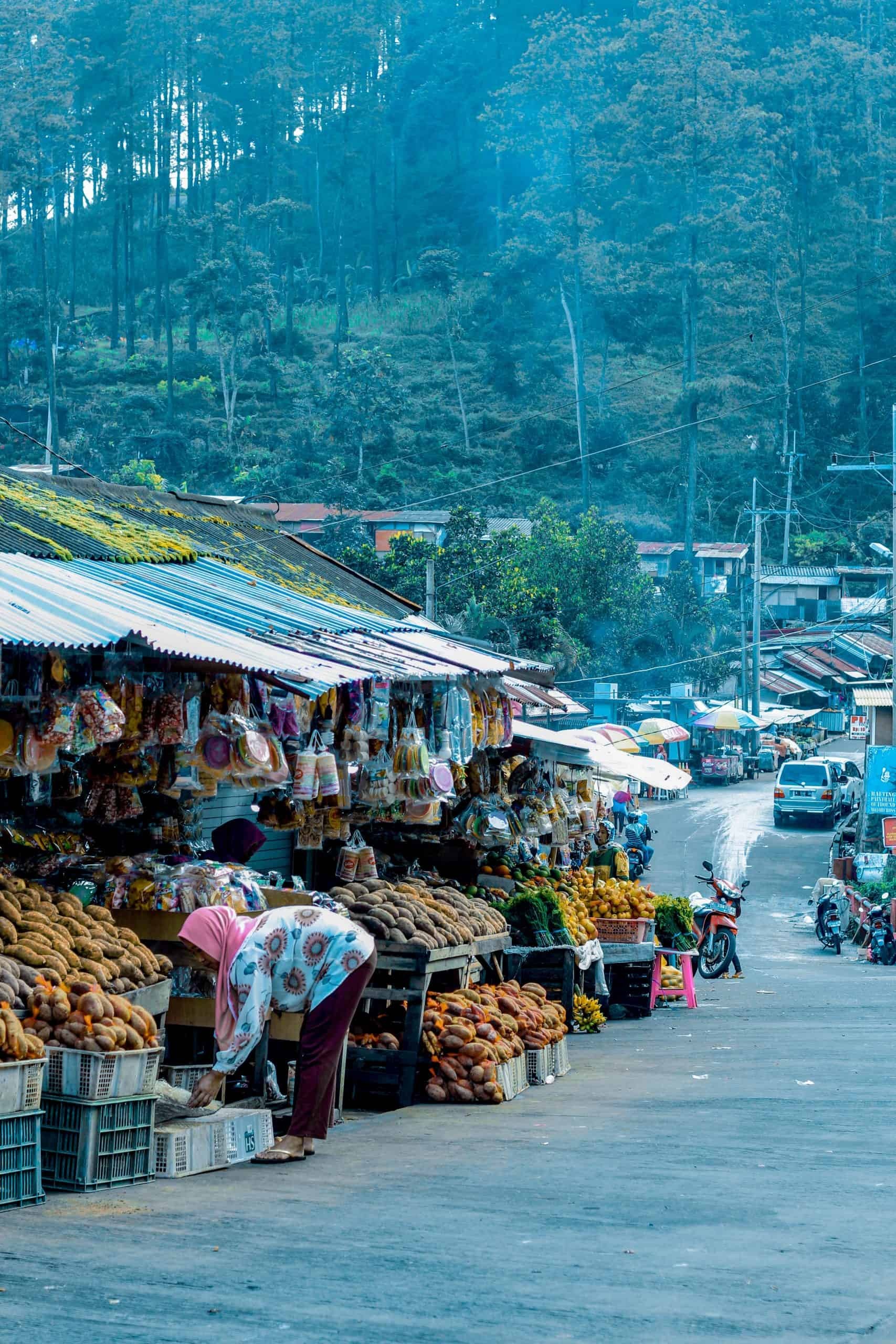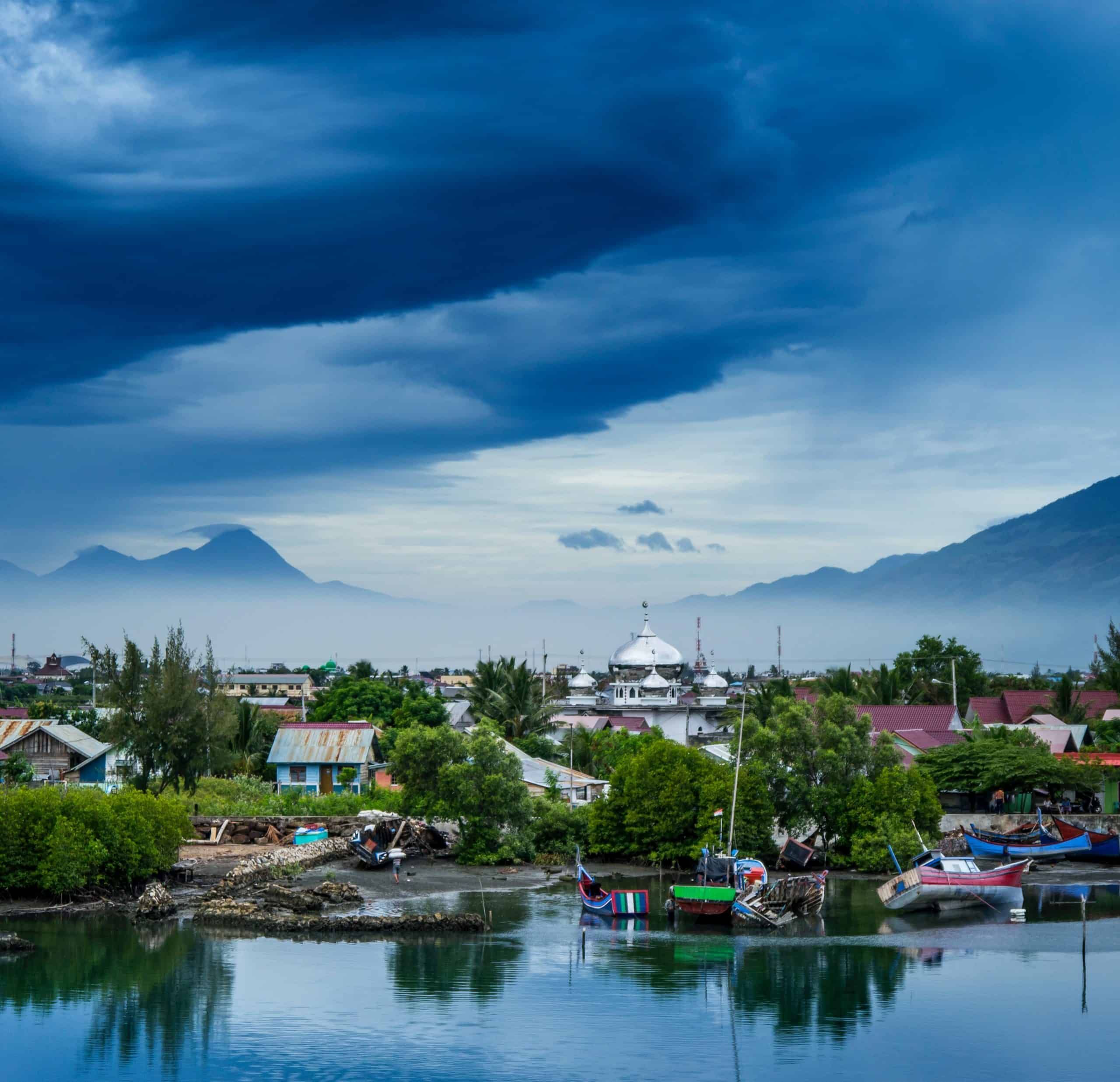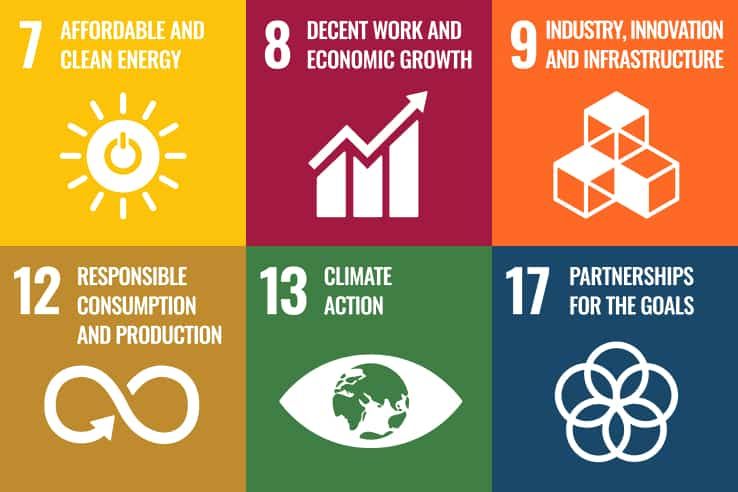Main Navigation
Indonesia
Overview
Indonesia has made a critical step towards achieving its climate objectives and alleviating poverty with its Low Carbon Development Initiative (LCDI).
Indonesia has experienced stable economic growth over the past decade, transforming the country into one of the largest economies in Asia. Yet, further action is needed to address poverty, inequality, unemployment and environmental degradation and the Indonesian Government is working to incorporate sustainability policies and emission reduction activities into its national plans and targets.
In 2017, the government, under the leadership of the Ministry of National Development Planning (BAPPENAS), launched the Low Carbon Development Initiative (LCDI), a non-siloed approach to achieve low-carbon development, sustainable natural resource management and poverty alleviation while maintaining economic growth. The various policy scenarios that were identified and assessed through the LCDI are being mainstreamed into the newest National Medium-Term Development Plan 2020-2024 (or RPJMN). This first “green” RPJMN was launched in the beginning of 2020 and will be used by sector ministries, government bodies and other stakeholders as a reference for their policymaking and programmatic planning for the next five years.
Indonesia has experienced stable economic growth over the past decade, transforming the country into one of the largest economies in Asia. Further action is still needed to address poverty, inequality, unemployment and environmental degradation and the Indonesian Government is working to incorporate sustainability policies and emission reduction activities into its national plans and targets.
In 2017, the government, under the leadership of the Ministry of National Development Planning (BAPPENAS), launched the Low Carbon Development Initiative (LCDI), a non-siloed approach to achieve low-carbon development, sustainable natural resource management and poverty alleviation while maintaining economic growth. The various policy scenarios that were identified and assessed through the LCDI are being mainstreamed into the newest National Medium-Term Development Plan 2020-2024 (or RPJMN). This first “green” RPJMN was launched in the beginning of 2020 and will be used by sector ministries, government bodies and other stakeholders as a reference for their policymaking and programmatic planning for the next five years.
Aligned with the LCDI, Indonesia joined PAGE in 2018 to transform its economy into a driver of sustainability and social inclusion — addressing development and environmental challenges at the national and sub-national level. With the Ministry of National Development Planning (BAPPENAS) as the key implementing partner, PAGE was launched in October 2018 to support the implementation of the LCDI Phase 2 with a focus on the energy, waste, green industry, forestry and peat, agriculture, and blue carbon sectors, in line with the national priority programme in the National Medium-term Development Plan (RPJMN) 2020-2024.
Through consultation with the government, PAGE Indonesia moved into its first year of implementation in 2020, with the new LCDI Phase 2 Framework and green economy stocktaking exercise as key guides.
COVID-19 and Green Recovery
In discussions with the Ministry of National Development Planning (BAPPENAS), circular economy was identified as a key area for PAGE to assist Indonesia as part of the country’s efforts to promote a green recovery through its ‘Build Back Better with Low Carbon Development (B3-Low Carbon)’ initiative. With targeted, additional support, PAGE will help assess the potential of circular economy to contribute to a green and inclusive economic recovery, inclusive of job creation, skills development, and resource efficiency improvements, and identify what fiscal and non-fiscal stimulus plans and policies will best foster private investment in circular economy. PAGE will also contribute to the development of a national policy and plan for promoting circular economy, which will inform the next National Medium-term Development Plan 2025-2029. An awareness-raising campaign on a green recovery and the circular economy for the general public and a targeted capacity-building programme on planning and budgeting for a green and inclusive recovery for government officials are also planned within this scope.
Sustainable Development
PAGE work in Indonesia is currently aligned to the following SDGs: SDG 7 (Affordable & Clean Energy); SDG 8 (Decent Work and Economic Growth); SDG 9 (Industry, Innovation and Infrastructure), SDG 12 (Responsible Consumption and Production); SDG 13 (Climate Action) and SDG 17 (Partnership for the Goals).
PAGE Milestones
- 2017
LCDI launched
- 2018
Indonesia joins PAGE
Kick-off meeting held providing an overview on the RPJMN
PAGE Inception Workshop held to inform PAGE support
- 2019
Report on “Low Carbon Development: A Paradigm Shift Towards a Green Economy in Indonesia” launched with inputs provided by PAGE on LCDI policy scenarios
A Framework for LCDI Phase 2 developed, including a role sharing matrix
Validation workshop for the Green Industry and Trade Pre-Assessment held
Four day introductory training on Low Carbon Development, System Thinking, System Dynamics Modelling and Red-cluw held
Draft green economy stocktaking study completed
- 2020
Development of LCDI energy sub-model commenced
Green economy stocktaking study report released
Kick-off meetings in West Java and Bali for PAGE’s support to the regional LCDI Implementation
Green Economy Learning Assessment commenced
Provincial LCDI macro system dynamics model completed and presented to key stakeholders
Rapid Assessment on Green Stimulus in energy, waste and industry sectors commenced
Progress in 2020: A Snapshot
Supporting implementation of the Low-Carbon Development Initiative (LDCI)
Indonesia’s green economy stocktaking study was finalized in March 2020, identifying areas for PAGE to support the implementation of the LCDI […]
Indonesia’s green economy stocktaking study was finalized in March 2020, identifying areas for PAGE to support the implementation of the LCDI as well as existing challenges for policy implementation at the national and regional level. As a result, PAGE is supporting phase 2 of the LCDI and implementation of the National Medium-term Development Plan (RPJMN) 2020-2024 – considered the first green national development plan in Indonesia, through the following activities:
- Supporting the translation of LCDI targets into specific sectoral policies at the national level, focused on the energy sector;
- Supporting local governments to mainstream the national LCDI model within their Regional Medium-term Development Plans (Rencana Pembangunan Jangka Menengah Daerah – RPJMD) and building capacity for its utilisation in future planning processes;
- Developing a private sector engagement platform and incentives for private sector support to LCDI implementation.
PAGE, together with other development partners, previously worked to identify policy interventions for the modelling exercise under phase 1 of the LCDI and subsequently integrate inclusive green economic policy scenarios into the RPJMN.
Roll-out of LDCI at the sub-national level
Aligned with the LCDI Implementation phase 2 Framework, PAGE is offering support on the sub-national level in three pilot provinces: […]
Aligned with the LCDI Implementation phase 2 Framework, PAGE is providing support on the sub-national level in three pilot provinces: West Java, Central Java and Bali. PAGE is contributing to the development of regionally specific models to support mainstreaming of the LCDI into the Regional Medium-term Development Plans (RPJMD) and formulation of the Provincial Low Carbon Development Plans (RPRKD). In June 2020, PAGE supported the development of a generic version of the provincial LCDI macro system dynamics model, which will be a key tool to translate the national low carbon development approach to the sub-national level, taking into account characteristics, development landscape and provincial data from the pilot provinces. PAGE provincial level support also includes capacity building and technical assistance, as well as an assessment on alternative financing schemes for the LCDI.
Contributing to green economy learning
In July 2020, PAGE commenced work on a Green Economy Learning Assessment (GELA) to help identify the learning needs […]
In July 2020, PAGE commenced work on a Green Economy Learning Assessment (GELA) to help identify the learning needs and institutional capacity for delivering trainings on green economy. The draft of GELA report was completed in November 2020 and identifies national sectoral and sub-national government learning needs in the context of LCDI implementation and green recovery. The development of the GELA was supported by three virtual consultations with line ministries, universities, learning associations, and civil society in 2020 which served for data collection and discussion. The outcomes of the GELA will feed into the Green Jobs and Just Transition Policy Readiness Assessment in the Energy Sector as well as contributing to assessing skills and developing capacity building activities targeting for policy makers and government.
Kick-starting the green economic transition
As 2020 marked the first year of implementation in Indonesia, a number of sectoral and thematic studies, reports and initiatives kicked-off […]
As 2020 marked the first year of implementation in Indonesia, a number of sectoral and thematic studies, reports and initiatives kicked-off, including the highlights below:
- Policy reform in the energy sector: The development of an energy sub-model will support the government in achieving better planning in the energy sector, aligning with the targets of the national LCDI strategy and GHG emission reduction.
- Reducing food loss and waste: Work started in Indonesia for a new workstream on food loss and waste, in partnership with the Waste and Resources Action Programme and International Institute for Environment, beginning with scoping activities.
- Green jobs and just transition: PAGE began a “Policy Readiness Assessment on Green Jobs and Just Transition in the Energy Sector in Indonesia” in August 2020 to identify potential for growth and to assist with policy reform in the energy sector, specifically as it relates to green economic recovery, green jobs and a just transition.
- Resource efficiency and green industry: A resource efficiency assessment is underway for the fertilizer industry as part of ongoing work that will contribute policy recommendations for stimulating and reward sustainable resource efficiency improvements in the sector.
- Green finance: Preparatory work is underway on green and innovative financing for LCDI in collaboration with BAPPENAS and the provincial government of West Java which will assess existing and potential economic incentives and green mechanisms to mobilise financing for LCDI priorities.




